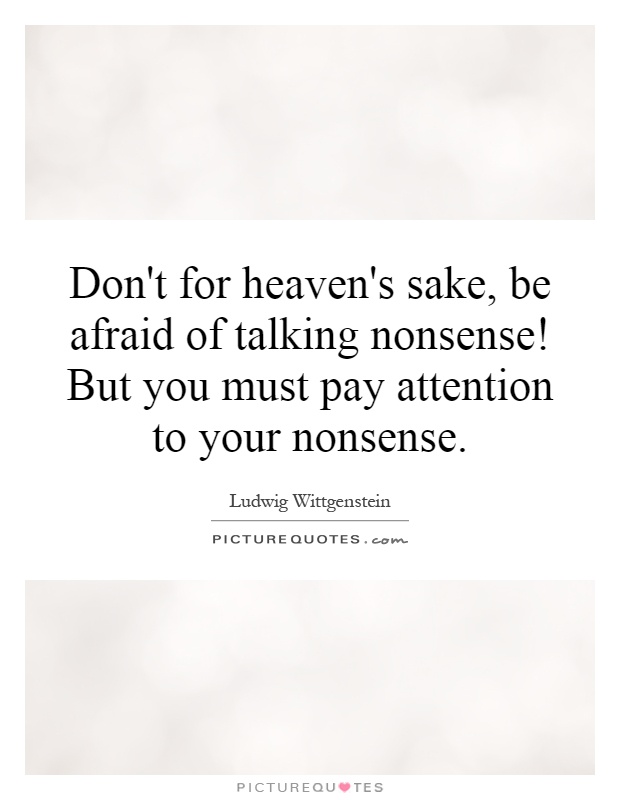Don't for heaven's sake, be afraid of talking nonsense! But you must pay attention to your nonsense

Don't for heaven's sake, be afraid of talking nonsense! But you must pay attention to your nonsense
Ludwig Wittgenstein, a renowned Austrian-British philosopher, is often remembered for his groundbreaking work in the field of logic, language, and the philosophy of mind. One of his most famous quotes, “Don't for heaven's sake, be afraid of talking nonsense! But you must pay attention to your nonsense,” encapsulates his unique approach to philosophical inquiry.Wittgenstein believed that language was a crucial tool for understanding the world around us, but he also recognized its limitations. He argued that language is not a perfect representation of reality and that it is often ambiguous, incomplete, and even nonsensical. However, he did not see this as a reason to abandon language altogether. Instead, he believed that by paying close attention to the ways in which we use language, we can gain valuable insights into the nature of reality and our own thought processes.
In his later work, Wittgenstein focused on the concept of language games, which are the various ways in which language is used in different contexts. He argued that language is not a fixed set of rules or definitions, but rather a dynamic and ever-changing system of communication. By studying the ways in which language is used in different contexts, we can gain a deeper understanding of the meaning of words and the concepts they represent.
Wittgenstein’s advice to “not be afraid of talking nonsense” can be seen as a call to embrace the inherent ambiguity and complexity of language. He believed that by exploring the boundaries of language and pushing the limits of what can be expressed, we can uncover new insights and perspectives that may have been hidden from view.
However, Wittgenstein also emphasized the importance of paying attention to our nonsense. He believed that by critically examining our own use of language and questioning the assumptions and beliefs that underlie it, we can gain a deeper understanding of ourselves and the world around us. By being mindful of the ways in which we use language, we can avoid falling into the trap of meaningless or misleading communication.












 Friendship Quotes
Friendship Quotes Love Quotes
Love Quotes Life Quotes
Life Quotes Funny Quotes
Funny Quotes Motivational Quotes
Motivational Quotes Inspirational Quotes
Inspirational Quotes